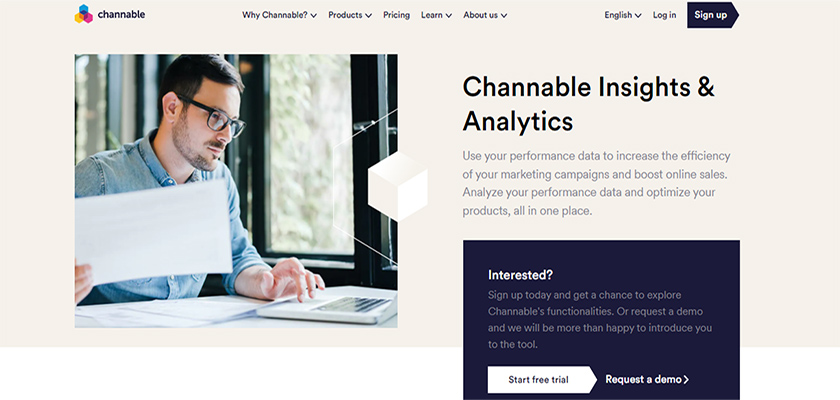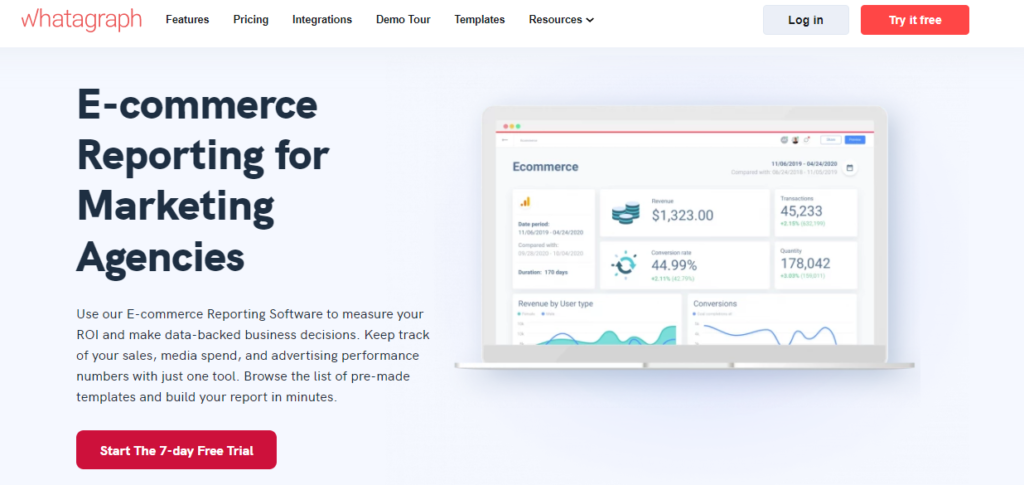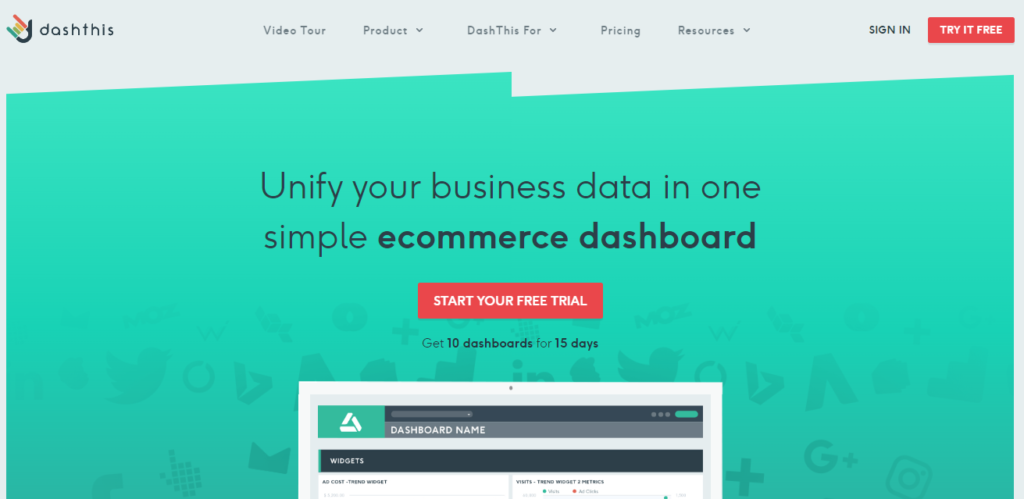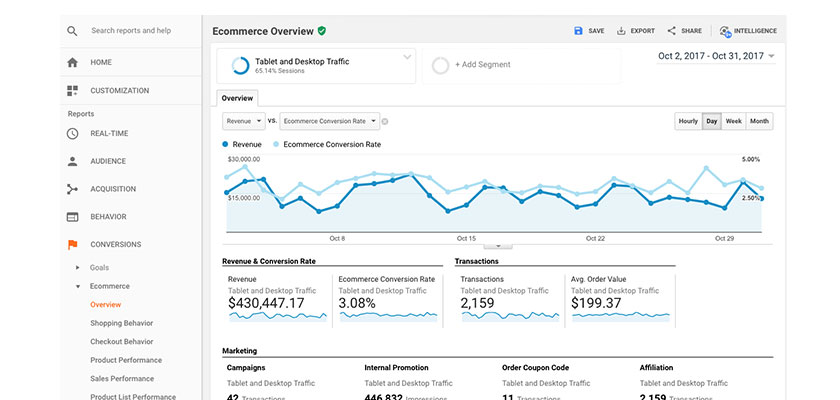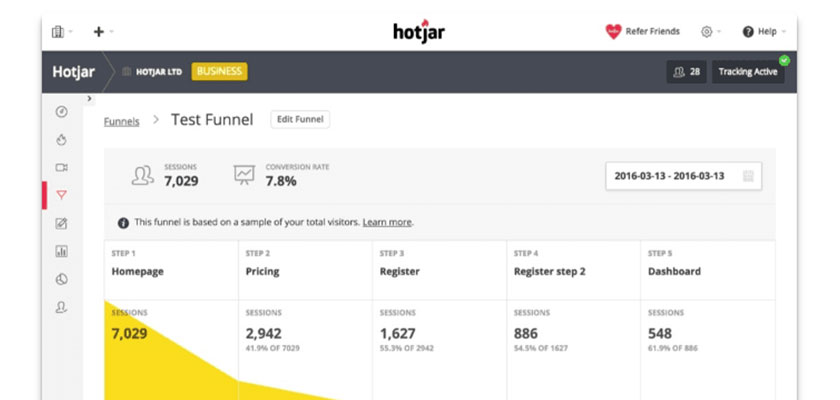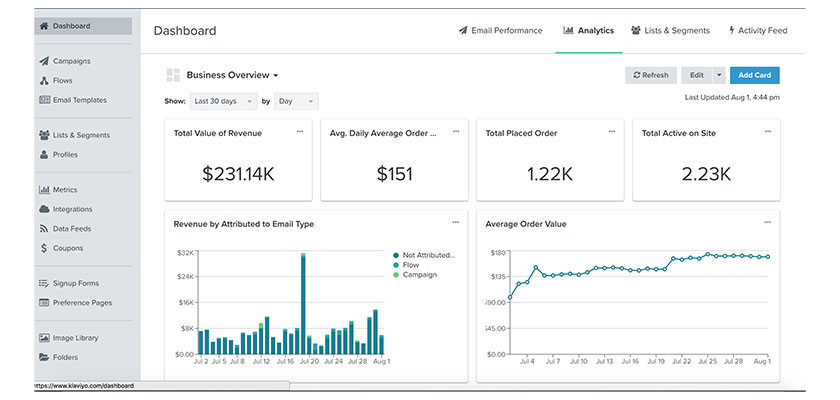
Best 9 eCommerce Analytics Tools for Online Shopping Businesses
Every eCommerce brand has its own unique needs, but the eCommerce metrics are almost the same for each of them. That’s why using eCommerce marketing analytics tools can take your brand to the next level! So at some point, you should consider using intelligent eCommerce analytics tools just to achieve your business goals.
Marketing metrics without meaningful context do not make any sense for any business. In this fast-growing and developing eCommerce ecosystem making this data more convenient can put your brand a step ahead of your competitors. While marketing analytics tools enable you to understand your weaknesses and strengths, at the same time they give you insights into online marketing and sales activities.
Understanding trends and measuring your key performance metrics in real-time gives you actionable insights to see the bigger picture of your brand. Not only limited to this, marketing analytics software for eCommerce also allows you to see which marketing strategies perform best or worst for your brand. If you be aware of all these components, you can take strategic actions at the right time to optimize your brand performance.
What are the Best eCommerce Analytics Tools?
Over the past years, there has been a massive growth in using marketing analytics tools in the eCommerce world. Brands that have seen this growth, want to get benefit from the increased traffic and online sales. As they do not want to miss out on any single opportunity, they keep a close watch on the eCommerce analytics tools.
We have gathered up the best analytics software for eCommerce brands and their key features below:
- Channable
- Whatagraph
- DashThis
- Oribi
- Google Analytics
- Hotjar
- Kissmetrics
- Klaviyo
- Woopra
Let’s dive into the world of top eCommerce analytics tools!
Channable
Channable has everything to take your eCommerce brand to the next level! With Channable Insights you can get real time insights into how your product’s performance is going on different channels, automate product segmentation, optimize marketing campaigns and much more. The reporting dashboard lets you put order your products from best to low performing ones. You can also import data that can be revenue, cost etc. from different channels to Channable Insights.
Segmentation has never been that easy! Channable Insights automates your product segmentation based on product performance in Google Smart Shopping. This means Channable will help you improve your Shopping Ads’ overall performance too.
As Channable Insights easily integrate with Google Analytics, you can see your performance data on the Channable reporting dashboard with no hassle. By using this data, you can make smart and data-driven decisions for your digital marketing strategy.
Whatagraph
A powerful marketing reporting and monitoring platform Whatagraph provides advanced solutions for eCommerce businesses. Keeping track of your sales, media spending and advertising budget and performance are just a few of the key benefits of this powerful marketing analytics tool for eCommerce brands can contribute.
As Whatagraph’s eCommerce analytics tool automatically collects and analyzes your marketing data from multiple channels, you can get instant access to the insights. These insights led you to build in-depth reports about your marketing & sales activities. The dashboard allows you to create reports as a list, chart, table or image. The reports can be easily customized according to the client’s logo, custom domain and colour scale. You can also get help from Whatagraph’s pre-made templates.
The staring point of one of the best eCommerce analytics tools is to keep all your data and vital KPIs in one place. This also helps gather data from Google Analytics, Facebook, LinkedIn or other places.
DashThis
DashThis is a complete platform for eCommerce brands. The platform offers an online comprehensive eCommerce dashboard to track all of your marketing data to understand better your customers. The dashboard enables you to see all your KPIs and give detailed information about your eCommerce performance in real-time and in one steady place.
As the dashboard gathers all your eCommerce data automatically, it will allow you to understand the volume of products and the profitability of each channel you serve or device you take aim at. In other words, the reporting solution saves you a ton of time to focus on improving your eCommerce strategy instead of getting lost in daily tasks.
We don’t need to mention that you can easily create reports with the drag and drop method, right?
DashThis can elevate your eCommerce reports with a wide selection of preset templates, custom templates preset widgets and cloning options. So, you don’t need to create a report from scratch for each customer. Reports can be shared with anyone via email, URL or PDF. In order to take your customization to the next level, DashThis provides custom domains and themes. For more, you can add custom widgets, branding, different colours, a logo, notes, headers or sections!
One of the best parts about DashThis integrates well with almost every digital marketing tool. As far as we know, they provide 34+ integrations right now. If we consider today’s highly competitive situation, this diversity lets every business, especially eCommerce ones, make the most of their profits.
Oribi
Oribi is a code-free eCommerce analytics solution that offers a bird’s eye view of your site’s data based on your marketing efforts. There’s no need to waste hours on conventional analytics platforms looking for metrics that often don’t make sense and with no clear-cut answers.
You get to delve into and dissect the metrics that are truly valuable to you. Take the Smart Funnels feature, for example. By assigning your key events (such as buttons, checkout pages, and more), you can see how your main funnel performs with just one click! Discover how your visitors flow through your funnel and where to optimize your funnel when you hit a gridlock.
Are the visitors who visit your blog posts likely to convert? What about the visitors who come from your email campaigns? With Oribi’s Event Correlations, you can get a pretty good idea of how specific events affect your conversions. Like this, you’ll be able to focus your marketing efforts on the channels and content that actually get you results without having to spend a good chunk of your budget on something that simply doesn’t work!
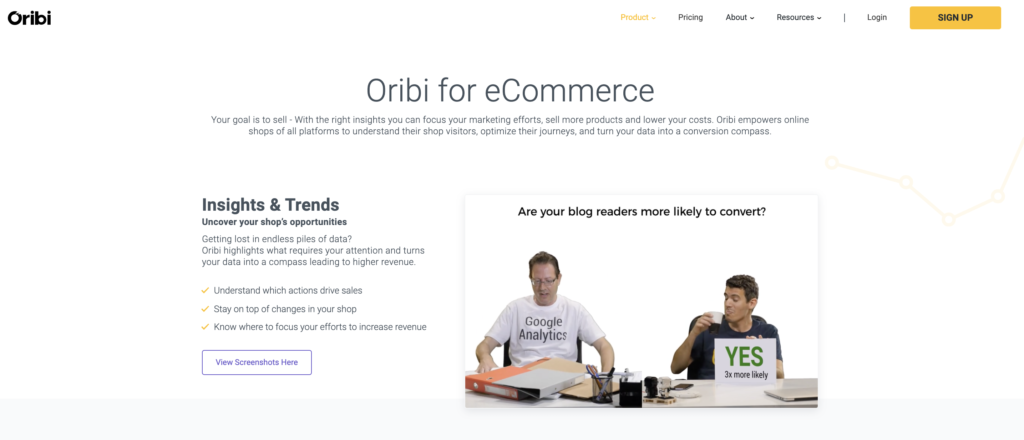
Google Analytics
Google Analytics is a go-to tool for almost every eCommerce business. It tracks and reports important eCommerce metrics such as sales conversions, product performance, customer acquisition, customer behaviour, interest insights and much more. As it is a free and easy to use eCommerce analytics tool, no doubt that Google Analytics is loved by everyone.
The tool lets you create custom reports, flow visualization graphics, and comprehensive audience reports to deeply understand both your existing and potential customers. Another great feature is Google Analytics comes with Google Search Console which is free and easy to use. This duo can provide eCommerce brands with in-depth metrics that can be used for the decision-making process.
As Google Analytics integrates well with almost every eCommerce platform, you can always keep on track of your sales and marketing activities.
Hotjar
An intuitive solution, Hotjar is not specifically designed for e-commerce brands, but it analyzes important metrics to turn them into actionable insights. The platform focuses on understanding customer behaviour, forecasting their needs and serving satisfying customer experiences.
The heatmap feature lets eCommerce brands see which categories, pages or products are getting the highest impressions. By doing that, online store owners can maximise their conversions. On the other hand, Hotjar shows how your customers interact with your online store. So, you can get an instant report performance of CTAs. While it monitors your customers’ interactions, at the same time it records them to make customers feel valued.
Lastly, with Hotjar’s ready-to-use survey templates, eCommerce brands can get their customer feedback in a fast and accurate way.
Kissmetrics
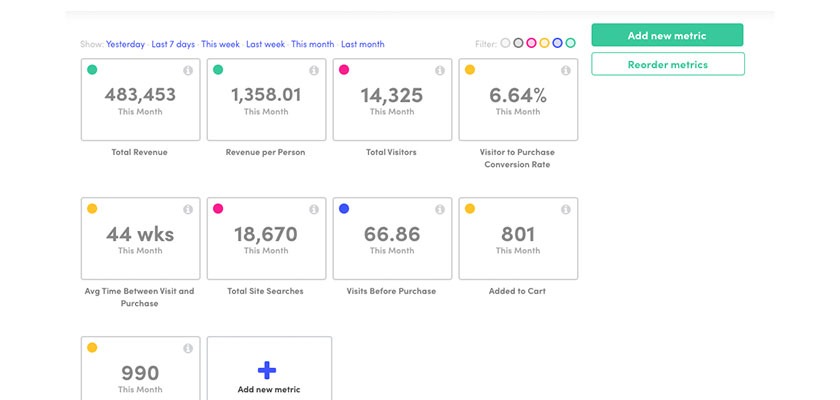
Another fantastic solution takes its place in this comprehensive eCommerce analytics tools list. Kissmetrics offers a detailed analytics tool alongside with advanced reporting feature. The platform covers all essential metrics of your eCommerce brands such as total sales, total revenue, average revenue per person, new visitors, conversion rate and much more in a more customized way.
The detailed reports cover information about your most viewed, added to cart, and purchased products, most viewed categories, most popular discount offers, the percentage of searches ending in a purchase and revenue that ranges from category to traffic.
Kissmetrics also allows you to segment eCommerce funnels by marketing channel, source, and campaign. So, being able to see the whole funnel enables you to monitor both purchasing and checkout behaviours.
Klaviyo
For accelerating business growth, eCommerce brands need to analyze trends and opportunities. This is where Klaviyo comes in. The platform mostly focuses on email marketing, as eCommerce is closely related to email automation. Klaviyo analyzes your email data, automates audience segmentation, and tracks email open rates and clicks.
In-depth email marketing analysis is a must to carry out campaigns effectively. Klaviyo enables you to analyze and report the key metrics, campaigns, flow, and product performance right from the dashboard. So, you can easily see which emails or texts drive sales.
A good part about Klaviyo is the ability to built-in and personalized benchmarks that are specific to your industry, growth rate, and other business characteristics.
Woopra
Woopra focuses on visualizing and optimizing every step of the customer journey. It also deeply analyzes sales funnels to avoid dreaded abandoned carts. Simply put, when a customer visits your online store Woopra’s analytics system starts working. It reports how long it takes a customer to make a purchase, which area a customer decides to drop out, how long users continue to take any action or how often they come back to make another purchase etc.
The customer journey module helps explore each customer’s unique story and respond to their behaviours, drive engagement and increase retention. With the comprehensive reporting feature, eCommerce store owners can identify which metrics mostly affect abandoned cart rates. So, that provides a basis to optimize the ratings.
How Data Analytics is Used in eCommerce?
There are loads of metrics that are used in eCommerce to measure the sales & marketing activities of your eCommerce business. The data analytics method is mostly used by businesses to forecast their eCommerce sales, optimize overall performance and increase their profitability.
Additionally, collecting data from any area related to your eCommerce business and using it to understand existing or upcoming trends will help you make data-driven decisions to drive more online sales.
Having a piece of statistical information about how your eCommerce brand is performing will enable you to answer important questions like how many times a customer has checked your site, which channels are bringing the highest ROI and much more. As each eCommerce brand is uniquely shaped, an important metric for one brand might be different for another. In the first stage, it would be more accurate to understand the main metrics that have the same priority for each business. If you are struggling with how to extract meaningful data from eCommerce analytics tools yourself, you can get inspired by these eCommerce agencies.
Final Points
As you can see, the market provides excellent eCommerce analytics tools that appeal to all unique priorities. Although it is vital to gather and manage the data for every business in this competitive world, the most important thing is how we can transform it into a meaningful form. That is why getting help from marketing analytics tools remains the top priority.
The best analytics solution will be reshaped by each business’ requirements. So, it is better to understand your needs at first. Then, you can check out the best analytics software for eCommerce that mostly matches your business needs, strategies and goals.
In addition to the best eCommerce analytics tools for online shopping companies we have mentioned above, there is more here that is waiting for you to discover!
















